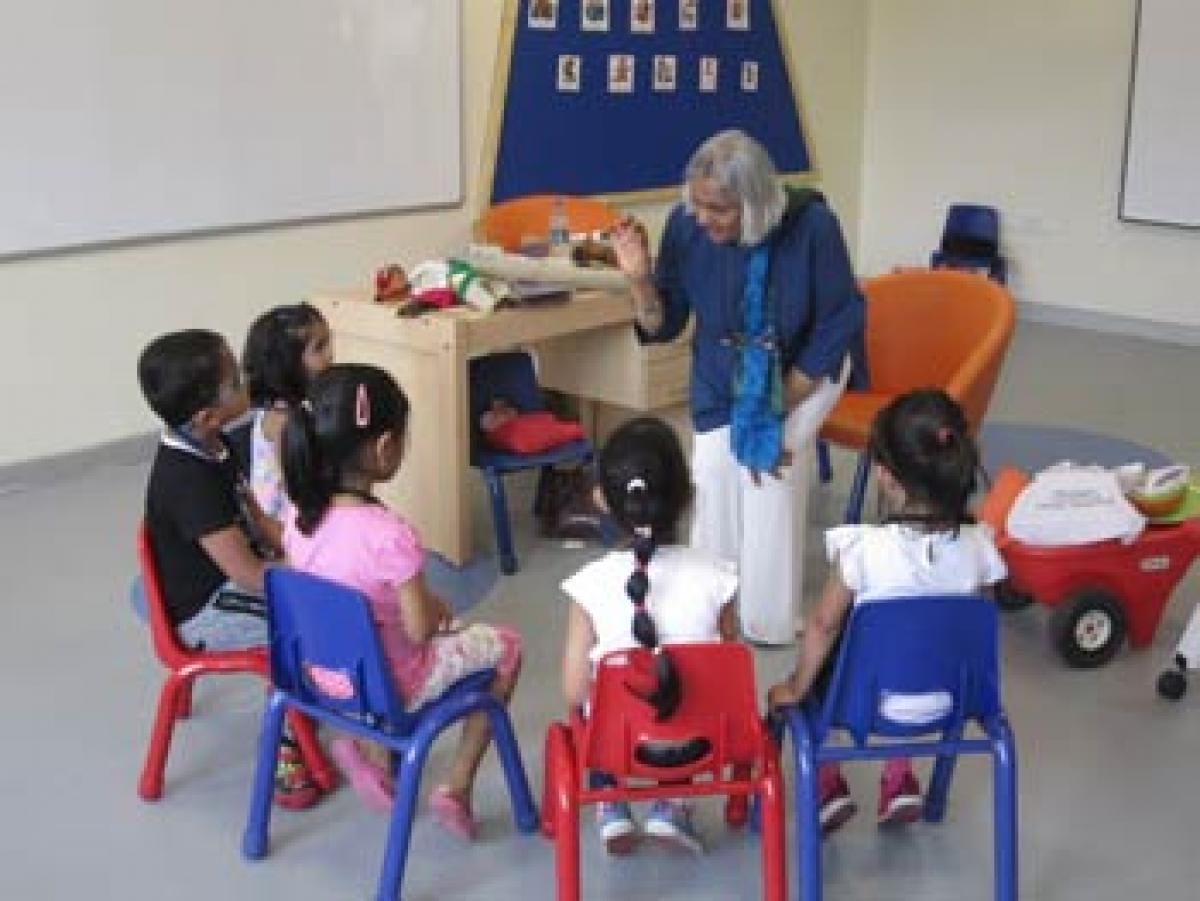The magic of storytelling

Eminent English writer Philip Pullman once made an observation that holds eternal relevance-After nourishment, shelter and companionship, stories are the thing we need most in the world.
Eminent English writer Philip Pullman once made an observation that holds eternal relevance-After nourishment, shelter and companionship, stories are the thing we need most in the world. We hear stories every day our grandparents share about their experiences and relive their youthful days, our children tell us about their picnic experiences and school adventures while our colleagues narrate about their weekend activities.
What is it that is so captivating about stories that they draw our attention, irrespective of one’s age? Research states that stories not only activate the language processing area in the brain, but they activate all the areas of the brain that would have been active had we been actually experiencing the story!
For instance, if somebody is sharing his experience of having eaten an amazing dish and we listen in rapt attention, our brain activates the area that makes us feel the taste of the delicacy as if we were eating it. Such vividly described experiences play an important part in a child’s development, as well. Children love to hear stories, tell stories and get excited about everything that relates to stories.
It can be a bit taxing for parents to be able to come up with new stories or tell the favourite story over and over again, but don’t skip that part! And, if you are concerned that your child is ‘telling stories’ as well, let’s see why we should engage our children in this refreshingly ‘learning’ activity.
Language Development: Listening to stories help children gain an exposure to a world of new words. Storytelling introduces them to intonation, expressiveness and basic conversation skills. Research has shown that children whose parents speak to them frequently (narrate things/incidents) learn to speak much earlier as compared to children who are less spoken to. This is because of the exposure they get to the language nuances from their elders. On the other hand, narrating stories help children develop their language skill as it gives them an opportunity to practise speaking a given language. Hence, they will construct sentences, create characters, build a plot and think of a climax; all of this will help them build their conversation skills and make their hold on language much stronger.
Cognitive Development: Children love to listen to, as well as narrate stories. This helps young minds build on their ability to memorise, including sequence of events, characters and plots. Some children also have a tendency to tweak a story every time they retell it. This helps them develop the creative and manipulative skills required to be able to tweak a given story. The ability to tweak will also create an urge to create a new story. Hence, it indirectly encourages children to be creatively imaginative.
Social Development: Listening to stories gives children exposure to basic social norms thatthey are expected to follow as they grow older. It helps them understand that they are individuals, who are part of a bigger system, the society, and they need to follow certain norms in order to be an accepted member. Values, imbibed through childhood stories, take deep roots and shape world views. Stories also encourage children to be more participative in a group set-up and become better listeners.
Inter-cultural Understanding: Stories give children an opportunity to explore the various cultures that exist or those that existed years ago. One can learn more about the different people that live around the world along with an understanding of the traditions and values they follow. This helps children understand the differences and similarities that these cultures celebrate and appreciate them.
Listening, reading and speaking are three important ways through which children participate in stories. Nowadays, ‘watching’ (movies and television) and ‘playing’ (video games) have also emerged as significant modes of participation in stories. While we bring increasingly richer and diverse story experiences to our children, we need to balance all modes of participation to help develop most skills.
Overuse of passive participation modes, like watching, may hinder a child’s development instead of quickening it. We need to promote active engagement of children in stories, and, although it may take more effort, it is infinitely more rewarding. (The writer is Research Head at Zee Learn Limited)








